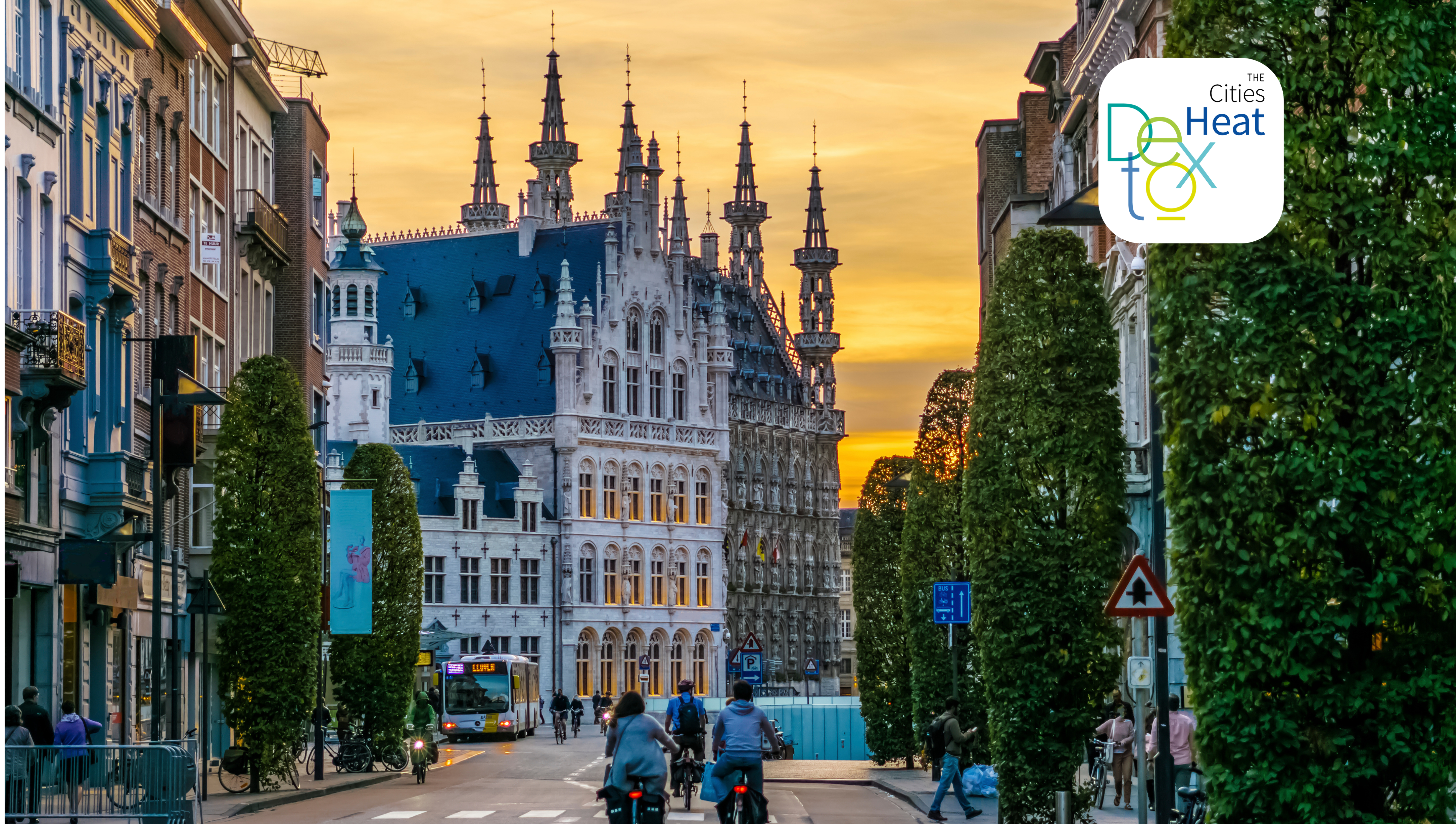Leuven, Belgium

Known for its prestigious university, Leuven is not short in potential for innovative solutions and ingenious technology – an important advantage the city must seize in its journey as one of the 112 European cities striving to become climate-neutral by 2030.
The need to decarbonise
Leuven’s ambitious climate targets are driven by the urgent need to maintain the city’s liveability. With temperatures becoming more extreme on both ends of the spectrum, it has become increasingly important to address heating and cooling, which is responsible for 60% of Leuven’s emissions.
A new method
Unlike in many other Northern countries, district heating is a new approach for Belgian cities, which do not benefit from kilometres of already developed networks. However, Leuven knows that district heating has a key role to play in accelerating the heat transition.
Leuven is still learning and adapting to this new method, which it considers to be fundamental in replacing fossil fuels. Despite being in the “learning curve” when it comes to district heating, Leuven kept its ambitious goal of decarbonising heating and is now exploring the possibilities that geothermal energy offers in its detox.
Building capacity
With NetZeroCities' Pilot Cities Call, Leuven is putting in practice a project aimed at developing new tools and capabilities across governance, policy, and finance, in order to support and enable the implementation of the city’s energy strategy while creating spillover effects that accelerate the city's journey towards climate neutrality. This project's objective is to decarbonise the heating system, while also, where appropriate, retrofitting and deploying renewable electricity.
Through this project, Leuven is developing a transferable approach to reduce emissions domains on energy use, particularly from heating, through aqua thermal heating harvested from the city river and other waterways such as the canal.
A community approach
As its heat plan progresses, Leuven has learned that a heat detox is truly a collective effort, in which knowledge institutions, companies, organisations and citizens must come together to support this ambitious mission. Moreover, to take full advantage of the opportunities in district heating and cooling, and to ultimately achieve a complete decarbonisation, Leuven must rely on the best experts and technicians around.
With its Pilot City activity, Leuven is also getting more experience in involving these different stakeholders and fostering trust and good cooperation.
Main challenges to detoxify heat:
- Having enough investment funds
- Putting the plan in practice – which involves challenging and solving existing regulation
- Convince private owners to be a part of the change.
Next Steps:
With the Pilot Cities Call, Leuven is undergoing a project to implement its energy strategy related to district heating. Through this project, Leuven is developing a legal structure for a heating company, and studying whether it should be private or city-owned.
In addition, Leuven is committed to use its major projects as a motor for the energy transition. By carrying out these developments as energy positive, they can enter into partnerships with the goal of making buildings climate-neutral.
Where they are in the heat strategy

Leuven's Heat Detox

Key heat figures:
- Emissions related to heating: 60%
- In 2023, Leuven had 4 heat networks with in total 614 connections (614 residential and 93 non-residential). This number of conncections is rising, since some important projects like Hertogensite are ongoing.
Covenant figures:
- Signatory to the Covenant of Mayors since: 2011
- Emission reduction ambitions:
- % GHG emissions reductions by 2030: 80%
- Mission City
City Awards:
- Green Leaf Winner 2018
Financing yout heat strategy
Various projects are being set up to seek financing outside the city budget, for example through a climate fund. The private heating networks that are constructed and managed by project developers were financed by private funds, but the city wants to have an impact on this in future projects by co-financing construction or management in order to convince developers to develop energy-positive buildings.
